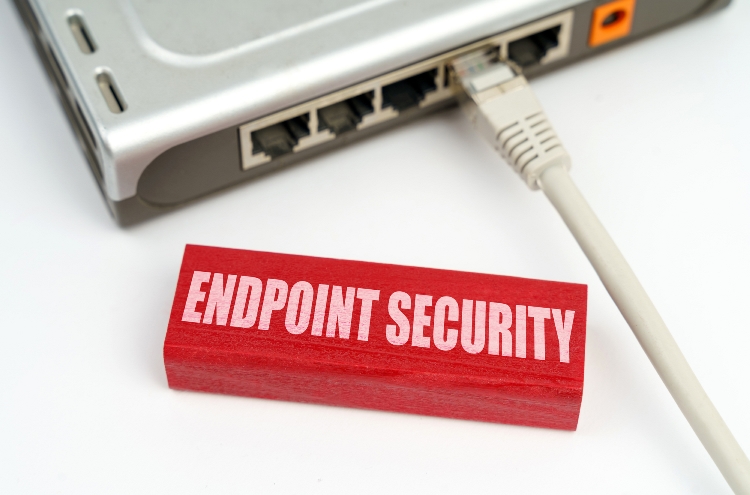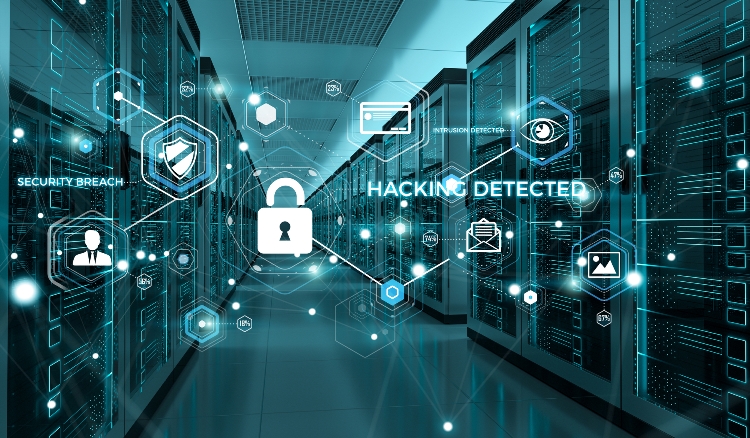Latest News
Latest blogs and updates from SonicWall-Sales.com
What is a Disaster Recovery Plan
hile you might have heard the term disaster recovery plan used in reference to other areas of your business before, you also need to think about this in terms of cybersecurity. A disaster continuity plan will help to protect you should a major disaster occur. Check out our firewall page here for more information about the products, which will be a huge part of this plan. They’ll help to avoid issues in the first place, offering your business years of protection during the most challenging of times.

What is a Disaster Recovery Plan?
A disaster recovery plan is sometimes referred to as an IT disaster recovery plan. It’s designed to help a business to execute their recovery process quickly and efficiently if any form of issue was to occur within their workplace. It is needed within any business that has an IT infrastructure, which is pretty much every business in the world today. It promotes speedy recovery, which is why a disaster continuity plan is so important to help your business get back on its feet following a disaster of any type.
The disaster recovery plan will lay out what your team should do before, during, or after the attack. As well as cybersecurity attacks, these plans can help you to recover following a natural disaster, such as a hurricane or tornado. You’ll also find these are used to discuss terrorism backup plans, which are sadly becoming more of a concern for businesses. No matter what situation your team find themselves in, a network disaster recovery plan can help to get you back to work as soon as possible.
Who Should Have a Disaster Recovery Plan?
Businesses of all shapes and sizes need a disaster recovery plan in order to manage their data. A lot of this data is critical for a business to survive, so you need to ensure the right steps are taken to avoid these issues. No matter how secure you believe your business is, cyberattacks are becoming more complex year after year. This plan can help provide a backup plan for any type of attack. It will be part of your wider business continuity plan, which discusses every element of your business and how you’ll react after a disaster.
Most companies have a plan in place for other types of issues, but they often don’t touch on the IT elements of the business. These are now so crucial to businesses, which is why a separate plan is needed with your IT systems in mind. You’ll need to analyse how your business operations will be impacted if you lose any of your data or hardware. In this situation, you’ll then need to have a backup plan ready to implement, which you can use to get back to the most important tasks you have to do. You can learn from past issues and lessons in order to create this plan, as well as read case studies from other businesses in your industry.
As well as focusing on the recovery after a disaster, you’ll find that business continuity and disaster recovery is something you need to think about before anything even happens. You need to train your team to ensure they know what to do each day to avoid issues. From there, they also need to be briefed about how to react if an emergency was to occur. The more people who know how to look out for cyberattacks, the more likely you’ll be to protect your company in the future. Products such as the SonicWall Gen 7 are here to support you and your BCDR with that task and minimise the chance of an attack in the first place.
Goals in Your Disaster Recovery Plan
A huge part of your business continuity strategy is writing down the goals you have in mind for your disaster recovery plan. You’ll find that these should state what you hope to achieve following a disaster. This should focus on your recovery time and the objective of recovery. You’ll want to state how much data you can afford to lose and how quickly you need to get everything back up and running to avoid disrupting your business. A network firewall is a huge part of this process and will help to reduce the chance of extensive downtime for your business. For small and medium-sized businesses, we highly recommend investing in a SonicWall firewall, which will protect your business from potential disasters.
By creating a disaster recovery plan, you’ll help to prepare yourself for any potential issues in the future. We encourage you to invest in a SonicWall firewall, which will be one of the main components of this plan. No matter what size of business you operate, it’s never too late to take action to avoid future issues and protect your business for years to come.
The logic of using three random words for strong passwords and why the NCSC advises the approach.
- National Cyber Security Centre (NCSC) explains the logic behind its long-standing password advice for the first time
- Using three random words is more secure than traditional advice built around ‘password complexity’, experts argue
- Approach allows creation of passwords to ‘keep the bad guys out’ whilst remaining easy to remember
Cyber security experts have today (Friday) revealed in depth for the first time the logic behind their advice to use three random words when creating passwords.
In a new blog post, experts at the National Cyber Security Centre (NCSC) – which is a part of GCHQ – said a key reason for using three random words is they create a password which is easy to remember and strong enough to keep online accounts secure from cyber criminals.
The blog post noted that using three random words to coin a password is more effective than traditional advice to create complex passwords, which can be difficult to remember and yet guessable for criminals.
Other reasons for choosing the three random words approach were:
- Length. Passwords made from multiple words will generally be longer than passwords made from a single word and therefore meet minimum length requirements.
- Impact. 'Three random words' contains all the essential information in the title, and can be quickly explained, even to those who don't consider themselves computer experts.
- Novelty. A password containing multiple words encourages a range of passwords that have not previously been considered.
- Usability. It’s easier for users to enter a three random word password than one which contains a complex range of characters.
NCSC Technical Director Dr Ian Levy, said:
“Traditional password advice telling us to remember multiple complex passwords is simply daft.
“There are several good reasons why we decided on the three random words approach – not least because they create passwords which are both strong and easier to remember.
“By following this advice, people will be much less vulnerable to cyber criminals, and I'd encourage people to think about the passwords they use on their important accounts, and consider a password manager.”
Rocio Concha, Which? Director of Policy and Advocacy, said:
“Ensuring you use strong yet memorable passwords online and with smart products is more important than ever – our research has repeatedly highlighted poor security practices in a range of connected devices, from routers and wireless cameras to apps.
“There’s a reason why new legislation announced by the government to improve standards for smart devices includes a ban on generic default passwords – these can make it easy for hackers to take control of devices or even your home network.
“Strong passwords can stop cyber criminals in their tracks, and we’d urge everyone to ensure they adopt good practice to safeguard their data and privacy.”
Creating passwords using three random words is one of the six key steps recommended by the cross government Cyber Aware campaign to protect accounts and devices from most cyber crime. More information can be found at cyberaware.gov.uk.
Protect Yourself From Attackers With the Log4j Flaw
The software development community was recently shaken by the news of the Log4j flaw. These vulnerabilities have only worked to show how critical cybersecurity protection is for businesses of all shapes and sizes. Go to the homepage here to learn more about how to protect yourself as we face these mounting concerns surrounding Log4Shell. Keep reading as we share with you the top tools to face these issues and protect your business in 2022.

What is the Issue with Log4Shell currently?
Log4Shell is the nickname that’s been given to the current vulnerability found within Log4j. As Log4j is used within so many applications, this has disrupted the software development industry more than anyone could have ever anticipated. With people reporting that their system has been hacked, it’s more important than ever to consider SonicWall products for your workplace.
The current issue with Log4j impacts laptops, mobile devices, and desktop computers using this software. However, many systems are at no risk whatsoever if they aren’t using anything which involves Log4j in its development. We are finding that companies that use web-based applications and internet-facing services are experiencing the most issues currently, but the Log4Shell vulnerability can be exploited by anyone to gain access to your system.
How to Overcome the Log4j Flaw
The good news is that help is at hand for anyone who fears they might be impacted by the Log4j vulnerabilities. You’ll find that SonicWall software and SonicWall firewalls are a good way to protect your business from both this current issue and further cyberattacks we may experience in 2022. This is the best way to secure your business and ensure you don’t lose precious data from your system this year. Another top tip for anyone who is concerned about whether Log4j was used in their applications is to keep everything up to date. If you are using Log4j in software development projects, make sure you update this to the most recent addition. They are working to make updates and overcome this issue, so you can continue safely using it.
The biggest issue with the current Log4j flaw is that it’s more of a back-end issue which isn’t so obvious to most business owners. Of course, your IT team may be more informed about these issues, but many people just keep working as usual without realising they might be risking their systems. The attackers are still trying to get through these huge gaps in the systems, which means they are causing havoc for companies around the world. There have certainly been some worrying reports about this flaw, and we encourage you to act quickly to avoid any further issues for your business.
What to Do If You Use Log4j
If your business is a direct user of Log4j, you need to take immediate action to overcome this issue. We recommend updating to the current version, which should have some of the flaws fixed. With older versions, make sure you go ahead and disable the lookup functionality. From there, you’ll need to restrict outbound connections, which will offer you an allow list that filters through anyone using your system. We highly recommend thinking about a long-term solution for security though, as it is likely this will be an ongoing issue throughout 2022.
The Benefits of SonicWall Products
To help overcome the Log4j flaw, we recommend looking into SonicWall products if you don’t already use them. They are some of the best options on the market to protect your business from cyberattacks this year. Even if you don’t feel too concerned about the Log4j flaw, we recommend taking this action anyway to ensure you are protected within your business.
The great thing about SonicWall is that it’s suitable for businesses of all shapes and sizes. Many small business owners think they don’t need to worry about these solutions, but that isn’t the case at all. You are just as vulnerable to an attack as a large corporation, and in most cases, this could completely devastate your business.
The Log4j flaw is something that we encourage all business owners to keep up to date with over the next few months. We hope this issue goes away soon, but sadly, it’s already caused a lot of problems for companies around the world. The sooner you put a system in place to protect yourself from cyberattacks, the more likely you’ll be to enjoy years of success within your business. If you are considering using SonicWall products this year, our team will be here to help you find the right solution for your business. Contact us today to discuss our full range of SonicWall products and how we can help you to prevent cyberattacks. We’ll be happy to answer any questions you have and support you during this concerning time.
Everything You Need to Know About Log4j
The popular logging tool Log4j has made news headlines recently due to the issues concerning this tool and how it is impacting businesses across the country. While there have already been some updates to Log4j, you’ll find that there are still some things you need to be aware of when using this tool. Keep reading to discover what Log4j is and how sonicwall-sales.com can help you to remain secure within your business this year.
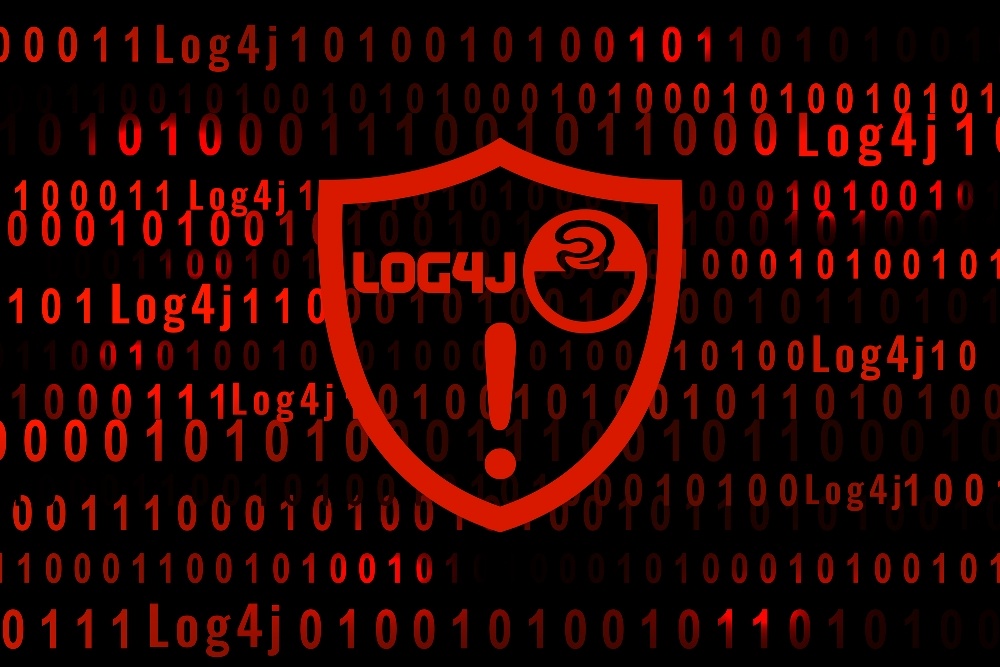
What is Log4j?
Log4j is used to create modern software, and it’s something that many organisations rely on for this task. It’s often part of the software library that you’ll use instead of writing endless code for your new software. Modern software is incredibly complex, and so the more tools that are used to make this process simpler and quicker, the better it is for everyone involved. These building blocks all come together to make powerful software without having to commit endless hours to the task. Instead of one author taking control of the full project, they can pull from other resources to find the right solutions to speed up this work.
The main purpose of Log4j for software developers is to help them keep on top of what happens within their online services and applications. It’s quite similar to a notes page or journal, which tracks and monitors all of your activity. The logging process will help to identify any issues you are experiencing, which gives the users of the application or software a better overall experience.
Issues With Log4j
As you can see, Log4j is a useful tool for software developers across the country. However, in recent times, we’ve heard about Log4j vulnerabilities, which have been a huge source of concern for users. This vulnerability means there’s an increased chance of hackers getting into the system and stealing crucial data from businesses. If they manage to extract this data, they can infect the network and wreak havoc for the businesses they’ve targeted. Log4j is used by companies around the world, so as you can imagine, news of this concern has spread quickly in the software development community. Over the upcoming years, you’ll find that this issue may only get worse, so it’s important to know if you are potentially affected by this concerning issue.
Who Should Be Concerned About the Issues with Log4j?
If you aren’t sure if the Log4j configuration issues will impact you, it’s important to learn how the Log4j properties which are vulnerable could impact your business. Any software has some type of log attached to it, and many software products rely on Log4j for this purpose. As a business owner, you need to think about whether your web applications and software use Log4j. We highly recommend you work with our team to find a way to protect yourself in the future and ensure you have SonicWall items in place to protect businesses of any size. For individual users, you need to make sure you stay up to date with your software updates. This will help to overcome any issues in the upcoming months with Log4j. If you are operating a business from home, SonicWall products may also be worth considering during this time.
If you know for certain that you are using Log4j within your business, make sure you update to the most recent edition of the product. Keep all other applications up to date as well, as these may use Log4j within them. As companies figure out whether they are impacted by these issues, they’ll likely release patches and updates to overcome any security concerns. Ask your software developers or suppliers if you are unsure whether you are impacted by these issues. We can advise you about SonicWall products which will also help to overcome any future concerns about Log4j properties and the way in which they could disrupt your business. We know that this isn’t the type of thing that any business wants to deal with, but it’s important you protect yourself and get the new year off to a good start without any concerns.
There are so many concerning stories floating around online about Log4j and the current issues, but you need to make sure you find a solution that works for your business. Make sure you keep on top of updates and work to overcome any potential issues you might experience in the future. We highly recommend you invest in SonicWall products this year to help stop your business from further issues regarding Log4j or other potential disruptions to your company. The sooner you protect yourself, the more likely you’ll be to have another great year of operations without any potential delays. Contact our team today for more information about how we can help you to overcome cyberattacks and the current issues with Log4j.
When Should a Cyberattack Be Reported?
When a cyberattack occurs within your business, you need to be prepared to act immediately. One of the most common questions we receive is when should a cyberattack be reported, and today, we’re here to ensure you know how to react within the first 24 hours of this incident. Keep reading as we share our top tips for reacting quickly to cyberattacks to help protect your business this year. Our firewall page will give you a good idea of some of the tools on the market which are designed to help protect your business from this happening in the first place.
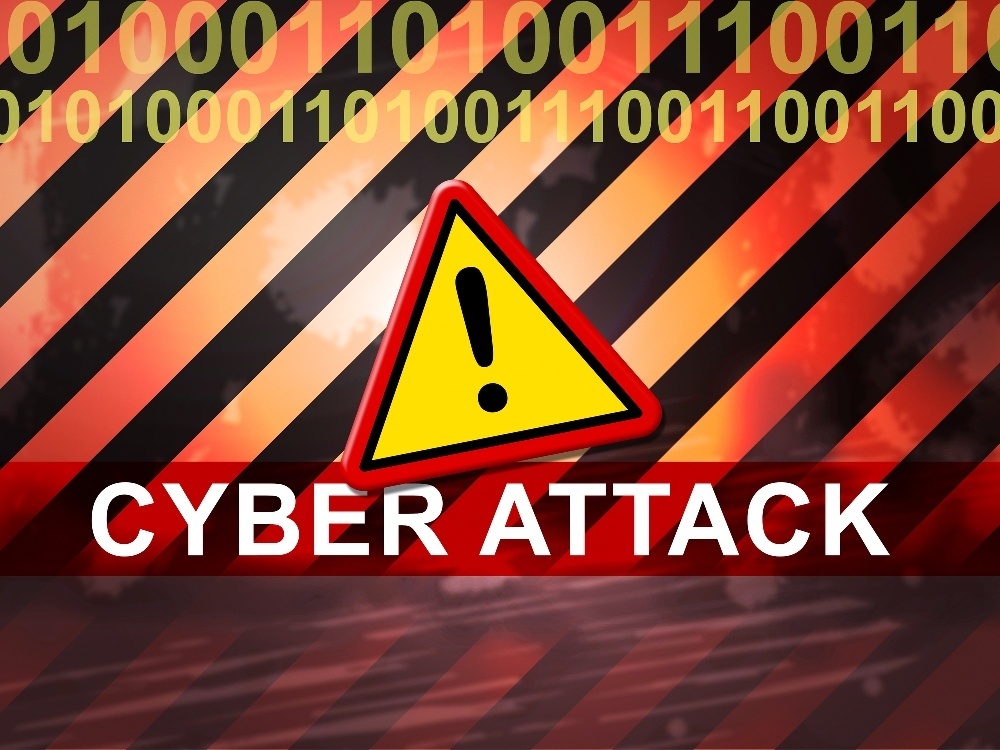
The Cyberattack Crisis
One of the most shocking statistics we hear in regard to cyberattacks is the lack of a plan that most companies have. Roughly 77% of businesses don’t have a response plan in place should an incident occur on their property. These cyberattacks can cost you millions of dollars, and over half of businesses will cease trading within just six months of a cyberattack. For that reason, you need to ensure you have a plan in place to react to a cyberattack. No matter how big or small your company is, finding a solution that will protect your systems is crucial for your ongoing success. Make sure you take this really seriously, as this might be the one thing that saves your business this year.
The first thing to keep in mind is the types of firewalls on offer for your business. A SonicWall firewall is the first line of defence that everyone needs. Products such as the Soho firewall and the Sonic firewall will try to stop these issues from taking place in the first place. By having the right security on hand at all times, you can be sure you will keep threats out before they take their toll on your business operations. However, in the small chance that a cyberattack will take place even with a firewall in place, make sure you know how to react immediately in order to have the best chance of survival.
React Quickly
The first 24 hours are the time that’s most important for responding to a cyberattack. At this time, you can work quickly to try and reduce the damage that’s taking place within your business. You’ll need to have a plan in place for who to contact and how to restore your security as soon as possible. If you can fully contain your breach within just a few days or the first month, you’ll find you save a fortune during this time. Try to find where the issue occurred and put measures in place straight away to stop this from ruining your business further.
An Incident Response Team
One of the key parts of cyberattack preparation is knowing when a cyberattack should be reported to senior management. You need to have a clear chain of command within your organisation should this type of incident occur. Have an incident response team in place at all times, and make sure you only have active employees with experience in this area on the team. Everyone in your organisation needs to know when a cyberattack should be reported so that you can do your best to prepare for this type of incident. When there is a clear chain of communication, you’ll find that you can quickly respond to any issues.
Training Within Your Team
While you might think that how to prepare for a cyberattack in the future is only important for your IT team, this isn’t the case at all. Anyone who uses a computer or device within your business is at risk of being the victim of a cyberattack. You need to ensure that everyone knows how to respond and isn’t afraid to talk about this openly with senior management. People often fear that they will get the blame for doing something wrong, but cyberattacks occur out of the blue for no reason at times. Don’t make your employees afraid to report a cyberattack, so ensure your management will react calmly and be considerate to anyone who has concerns about your computer systems. By getting everyone on board, you’ll have more eyes and ears at all times looking out for the signs of cyberattacks.
When your business has a plan of action in place to overcome cyberattacks, you’ll find you are much more likely to respond quickly to this type of issue. Ensure that everyone in your business is trained in this area and that they know how to respond to issues that appear. Make sure communication is clear at all times and that everyone knows who they can turn to in the future if any issue is to come up. Our team will be here to support you on your cybersecurity journey and ensure you have all the tools in place to minimise the chance of an attack happening in the first place.
Read next article: The Best Year Yet for SonicWall
Cybersecurity for CEOs and Boards
Cybersecurity is something that every single employee in your organisation needs to be aware of. This includes the new intern through to the CEO of the company. When it comes to cybersecurity for boards, you’ll want to ensure you have a SonicWall firewall by SonicWall-Sales in place as the first step before talking to them about the ways you can get everyone in your organisation on board with cybersecurity. Keep reading as we share our top tips for cybersecurity for businesses in any industry this year.
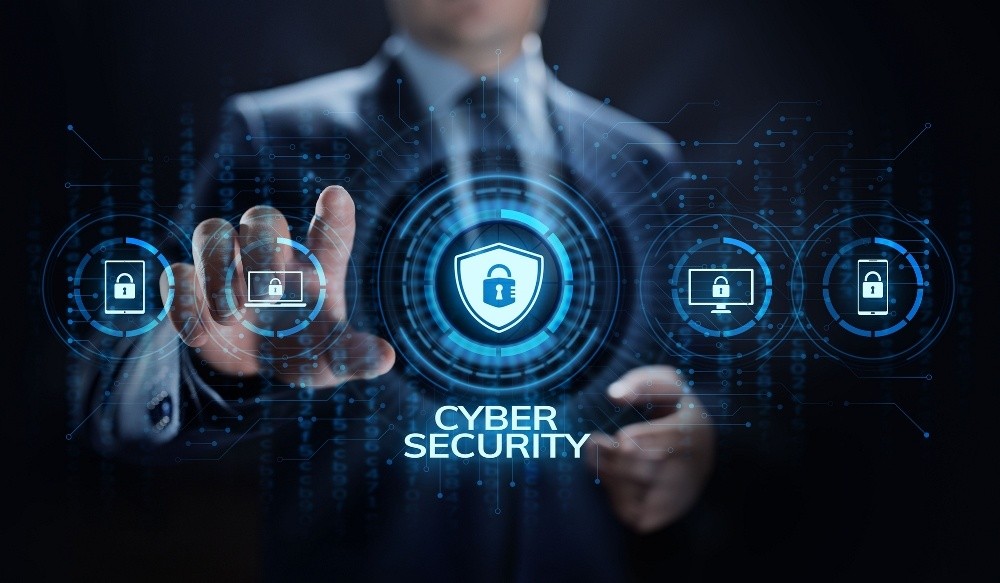
Identify the Critical Systems
Before even starting to discuss cybersecurity with your CEO and board, you’ll want to ensure you have a SonicWall firewall in place. Without SonicWall firewalls, you’ll find that you don’t even have anything to show that you are making the first step to protecting the organisation. Your CEO needs to be aware of the benefits of SonicWall firewalls so that they know there is protection in place at all times for your business. No matter the type of business you work for, the more involved your CEO is with cybersecurity, the more likely this will be to filter down your organisation. They need to look at how systems will help protect your revenue and ensure that confidential information is kept safe at all times.
Once you’ve identified your critical systems within IT, also look at any systems you have for manufacturing or other areas of your business. You’ll find that they are equipped with technology too, which could become the victim of a cyberattack. Make sure your supply chain is safe at all times so that you don’t risk losing any of your business or customers should a cyberattack take place.
Discuss the Risks to the Business
For many IT teams, they are concerned about having open conversations with CEOs and boards about their critical systems. Cyberattack preparation can be a tough topic to bring up with the board, but it’s important to be open and honest about this issue. Cybersecurity for boards needs to be treated differently than your cybersecurity IT team would talk to your employees. That’s why some companies opt to use cybersecurity consulting. This is a good way to break down cybersecurity for CEOs and make it more applicable to their top concerns within your business. Once the CEO and board are more aware of the risks of cyberattacks to your daily operations, they’ll be far more likely to support you with training your employees and responding to incidents.
Have a Plan in Place for Attacks
When you first start working with the CEO and board to make them more aware of cybersecurity, you need to ensure your IT team has a plan in place for a potential attack. When an attack occurs, you need to try and respond within just 24 hours so that you have the best chance of recovery for your organisation. You should have an emergency team that everyone knows to contact and who the CEO and board will be familiar with talking to about these issues. You’ll find that when everyone knows who to call if they notice an issue, you’ll be much more likely to respond quickly and save your business from potential ruin.
Plan Cyberattack Practices
While this might sound a little silly to some businesses, the best way to test out your current setup is to plan a mock attack. You can get everyone on board in your organisation in the way you would with a fire alarm test. You’ll be able to see who notices the attack and how they respond to it. This is an exercise in cybersecurity for business that everyone should adopt. It will help to keep you prepared and ensure all of your team knows how to respond in an emergency. The more often you start doing these drills, the smoother your operations will become. Everyone will feel confident responding to an attack, from the CEO down to the newest employee in your business.
By following these top cybersecurity tips, you can ensure everyone in your business remains dedicated to cybersecurity this year. Your CEO and board need to support this movement at all times so that you remain in compliance and stop anything from entering your system. When they start to see the financial impact it could have on the company, you’ll find they are much more likely to pay attention to the protection you have in place for your systems. Contact our team today for more information and advice about working with a SonicWall firewall to protect your business. We’ll be happy to work with your employees to find a solution that’s right for your business and support you during this concerning time when we see more cyberattacks than ever before on businesses.
The importance of continuous security monitoring
No matter how complex, every business and network must be protected from vulnerabilities, cyber threats and attacks as soon as they occur, not minutes, hours, or days afterwards.
There are always new and evolving threats to networks, and often, many of these threats go unnoticed or undetected as hackers continue to try and insert destructive malware, attack system infrastructures and steal sensitive data.
However, with the right firewall and the implementation of continuous monitoring, businesses can be confident that their security levels remain high, and teams can act quickly when a threat is detected.
There is a vast range of types of firewalls currently on the market, and at www.sonicwall-sales.com/firewalls, you will find everything you need to know as well as a helpful team on hand to answer your questions.

The importance of continuous security monitoring
Vulnerability management
Continuous security monitoring is the ongoing monitoring of networks and checking their security status 24/7, identifying, evaluating, treating, and reporting network vulnerabilities.
With servers, desktops, cloud, virtual, and containerised assets needing to be scanned for vulnerabilities, security monitoring is required so actual or attempted security attacks are found, with appropriate processes in place to respond.
Ultimately continuous monitoring helps businesses manage risk better.
- Looking at the activity that could negatively impact your network assets and systems
- Always monitoring threats
- Reporting unnecessary exposure
- Monitoring unauthorised changes and misconfigurations
- Detecting security vulnerabilities
- Providing you with compliance to industry standards and regulations
- Identifying threats and missed security issues in set policies
- Producing detailed reports
- Providing policy documentation to meet compliance requirements
- Decertifying all mandated firewall rules and configurations
- Providing greater depth security intelligence.
SonicWall's firewalls matched with continuous processing delves into sets of rules, comparing these against any proposed changes to internal network and system checks.
All regulated businesses held to the standard must include continuous monitoring as part of their security processes.
Continuous monitoring of best practices
Regulatory standards require constant compliance, which means you must continually check your systems for potential security threats a there is no network time off!
For businesses, continuous monitoring helps avoid data breaches, potential penalties, legal action, and even loss of reputation.
This is why maintaining visibility into network changes is essential, providing businesses with a greater understanding of what is happening to the network and why. Knowing, with confidence, that your data and intellectual property are safe, your security protocols are adequate, and your policies and processes can be followed and indeed work.
To help, some of the best practices you could implement into your processes include:
- Risk assesses your systems and data, adding values to assets that allow you to prioritise and quantify risk in a more manageable way, providing you with a clear picture of your network environment.
- Choose the right security solution for your network and apply the right policies and processes that directly affect the identified risks.
- Ensure that when you buy the SonicWall firewall, it integrates seamlessly with all vulnerability scanners and more.
- Provide adequate controls that work with your security policies.
- Continue to assess and review all controls to ensure 100% protection at all times.
- Track all changes and any impact these changes may or may not have.
- Maintain tight security controls to ensure full compliance with policies.
- Look for collaboration and influence from peers and leadership teams, using a common language with shared objectives.
- Integrate your vulnerability risk management processes with internal tools and processes, so remediation efforts can seamlessly flow through all existing networks, finding and fixing vulnerabilities instantly.
The perfect solution
To provide you with the best visibility, security, and flexibility, look for a firewall solution that can offer you:
- Real-time monitoring and security analysis
- Policy search options
- Traffic flow analysis (understand network behaviour and firewall policies)
- Modelling and testing (impact of potential changes)
- Customisable reporting with flexibility based on context
- Collection of live vulnerability data from all identified endpoints.
- Dynamic dashboards that showcase behaviour trends and allow you to track the progress of security programmes easily.
- And so much more.
The focus is on making networks more secure at the moment, accessing actionable intelligence through continuous and historical data.
Continuous monitoring analyses millions of vulnerabilities in seconds, so you can proactively secure your networks and make the best and informed decision for your security requirements.
Today, as working from home becomes more of the norm, it has become even more challenging for security teams to manage and control their networks, let alone defend them from attacks.
We need to understand risk at every level, understand the complete IT landscape and business environment, and have a clear picture of overall risk from existing to new assets joining the network.
Firewalls and security processes and policies should be reviewed regularly to ensure that they still provide the level of security required and that they meet the business needs.
To find the right firewall for you and your business network, call our team today on 0330 1340 230 or email enquiries@sonicwall-sales.com.
The Top Online Security Myths
While the internet offers us a wealth of incredible information and advice, you’ll find there are so many online security myths out there today. When you start to believe these myths, you put your business and systems at risk. Today we’re here to debunk some of the top myths our team of SonicWall Sales experts has seen over the years. We’ll put your mind at rest and help you find the best SonicWall firewall solution to fit your business needs.
1. Small Businesses Won’t Be Attacked Online
The internet is a massive place, and no one is safe from hackers today. You might think that just because your company only has a few devices or you just work on your phone, you don’t need to protect yourself with a Sonic firewall. That’s not the case at all. Regardless of how many computers and pieces of software your business uses, you need to ensure you are protecting yourself from attacks. Each year, these attacks are getting more and more complex, meaning anyone is open to these issues. These hackers are becoming even more advanced, which is why you need to start protecting yourself now before it’s too late.
2. All You Need is a Firewall and Antivirus Software
Using SonicWall firewalls is one of the best ways to protect yourself from hackers and other issues. We also recommend looking into antivirus software to make it less likely for an intruder to access your system. However, that doesn’t mean you can do anything online and just have no concerns about security. As a business owner, we recommend that you make sure you keep your software up to date and educate your team about online security. So often, these attacks occur as a result of someone not understanding the risks involved with clicking links or opening attachments online. The more business online security you can offer your employees, the more you’ll protect your organisation in the future. On top of that, also think about endpoint protection if you have a lot of your team working from home still to protect your business wherever it’s operating from.
3. Mac vs Windows
When it comes to using different types of computers, most people naturally think that Apple products are completely protected from intruders. However, you’ll be surprised by how much risk is still out there for Mac users. While they are usually more secure than Windows devices, this doesn’t mean they are immune from any issues. You’ll find that as this type of device has become used more often, there is more risk for Apple users. This is one of the top cyber security myths and one you should keep in mind when purchasing new devices for your workplace in the future.
4. The Cloud is Too Risky for Businesses to Use
The cloud is one of the newer inventions that businesses are now relying on each day. We have started to hear more news stories about hacking in the cloud, but that doesn’t mean it isn’t a great option for your company. In fact, when you offer yourself the right protection, you’ll find that it’s a great way to store data away from your hardware. Make sure you compare cloud services before selecting the one that’s right for your company. For the most secure option, try and find one with a private server, which will offer you full security without sharing your server with anyone else. There are different options for any type of business, so research the solutions out there and discuss with our team how we can help you to protect yourself when working in the cloud.
5. Protecting Your Computer Will Slow It Down
A reason that some companies tell us they aren’t interested in using a firewall is that it might slow down your computer. With the advanced technology on offer today, you’ll find this isn’t the case at all. You don’t need to worry about your software or hardware working slower, as this just isn’t an issue with modern SonicWall firewalls. You’ll still be able to complete your work at the same speed as before while also knowing you are fully protected from malware and hackers. This is one investment you shouldn’t skip over and it will ensure you give yourself the protection you need for many years to come.
These are just five of the top online security myths we are constantly hearing today. If you have thought one of these myths is true for a while now, it’s time to start protecting your systems from potential attacks. With options on offer for companies of any size, it’s never too late to start protecting your work further. For more information about using a SonicWall firewall and how it can help your company, contact us today to discuss these security solutions with our team.
What is Endpoint Security Protection?
Evolving from traditional antivirus software, endpoint security provides businesses with a more comprehensive level of protection against sophisticated malware and evolving zero-day threats.
Securing devices such as desktops, laptops, mobile devices, and more from being exploited or falling victim to cyber-attacks, integrating with SonicWall firewall, endpoint security protects the endpoints on a network or in a cloud.
With the increase in remote working and BYOD, the importance of endpoint security has also increased.
As a centrally managed security solution, endpoint security examines files, processes, and systems for suspicious and malicious activity, reporting, blocking, containing, and removing this as appropriate from your network before it becomes a huge risk.
Endpoint Security Protection
No one is immune from cyber-attacks or malware threats. In fact, it's reported that hackers will issue a new cyberattack every 39 seconds, with similar reports highlighting that 30% of data breaches that a company experiences involve malware being installed on endpoints.
Cybercriminals continuously find new ways to gain access, steal information, manipulate employees to access sensitive information, and more.
This makes the case for the importance of endpoint security. Making it the first line of defence for your business, allowing you to detect, analyse, block, and contain attacks quickly.
Working with other security technologies and integrating with SonicWall business firewall can also be your best chance at protecting your business, speeding up detection and remediation response times.
Data is your most valuable asset, and you must protect it at all costs. Because when such sensitive information falls into the wrong hands, your entire business is put at risk.
What is Endpoint Security?
Endpoint security protects workstations, servers, and other devices from malicious threats and cyber-attacks. It is required to analyse, detect, block, and contain threats before they become a risk to the business.
Endpoint - a device that connects to a network. In the growing era of technology, endpoints have evolved and expanded and can now be in the form of wearables, smart devices, voice-controlled digital assistants, as well as mobiles, desktops, and laptops.
This means every device an employee uses to connect to your business's network is at potential risk. So, you must protect all endpoints to help secure remote working and on-site.
Endpoint security looks at your complete network, not just single devices (like antivirus software), monitoring all connected endpoints from a single location. Detecting and preventing security threats as they enter the network and comparing these against threat information.
With the right endpoint solution, you can now monitor, protect, investigate, and respond to incidents more effectively and efficiently.
End point security can be on-premises or cloud-based models or a hybrid approach.
Endpoint security vs antivirus protection
Both endpoint security and antivirus software perform very different roles in the protection of your business from cyber-attacks.
For example, your antivirus software will find and remove malware or malicious threats, whereas endpoint security can identify the malware before it even enters your network.
You can also expect visibility in real-time with endpoint security, providing you with a proactive defence against future attacks.
Other key differences include:
Device coverage – antivirus software is installed on individual devices and is often updated manually. Endpoint security manages and monitors the entire network.
Advanced protection – antivirus detects and removes malware, whereas endpoint security can detect it before it even enters your network.
Admin control – endpoint security across the entire network is all managed centrally from one location.
Integration – endpoint security can be easily integrated with other security software and SonicWall firewalls.
Benefits of Endpoint Security
- It can push updates automatically.
- You can authenticate login attempts.
- Can administer policies from one location.
- You can block applications that are deemed unsafe or unauthorised through encryption.
- Employs continuous monitoring, providing you with improved visibility and a range of response options.
Types of Endpoint Protection
- Endpoint detection and response
- Endpoint protection platform
- Mobile threat defence
- Advanced threat protection
All of the above include features such as antimalware, analytics, the ability to enforce compliance policies centrally, data encryption, firewall and application control, sandbox inspections, secure remote access, and URL filtering.
SonicWall Firewalls
The right security solution depends on your business requirements. For example, how many employees do you have? Is everything on-site, in multiple locations, or remotely working?
What is device ownership? Level of business data sensitivity.
We would advise you to look for packages that include:
- Antivirus/malware protection
- Ability to detect threats across multiple endpoints.
- Proactive web security
- Support with data loss prevention
- Integrated SonicWall firewalls
- Protected email gateways
- Insider threat protection
- Centralised management options
- Full encryption.
We offer a full range of firewall and endpoint security protection, helping to keep your business safe now and in the future.
To learn more and see how we can help protect your business, call 0330 1340 230 or email your requirements to enquiries@sonicwall-sales.com; we'd be happy to help.
Why You Need to Upgrade to the SonicWall TZ Firewall
For anyone who is familiar with SonicWall firewalls, you might have heard about the new SonicWall TZ firewall. This is one of the most exciting additions to their product range, and our SonicWall support team is thrilled to share more about this solution with you today. Let’s take a look at some of the top reasons you should upgrade to this latest product this year.
Protect a Large Number of Users
When a higher number of users are using your system at one time, you naturally put yourself at a greater risk. The new SonicWall TZ firewall is ideal for anyone who has a high number of users simultaneously needing to be active on your system. In comparison to other solutions on the market today, you’ll find that this is a great option for medium to large businesses, but smaller businesses will also benefit from this product as well. When you have more employees, you are more likely to be the victim of an issue that occurred due to human error. This is something we can do very little to avoid, so it’s best to always do everything you can to protect yourself.
Stop Advanced Threats
There’s no denying that hackers are becoming more and more advanced now. You’ll find that regardless of what type of business you own and operate, you’ll be more likely to be the victim of a cyber threat in the future. The SonicWall Capture Advanced Threat Protection sandbox offers you the protection you need against more persistent threats and these new and advanced attacks. Even if malware has never been seen before on your system, it will help to stop over a thousand attacks each day. SonicWall Capture ATP is only available on newer firewalls, which makes it one of the top reasons to upgrade your system this year.
Performance Won’t Be Slowed Down
You should never have to compromise performance just because you want to offer your business a more secure firewall. With more companies relying on video streaming during the recent pandemic, you need to ensure you can still push out content without impacting your performance. The new firewall offers you the SonicWall support you need to work with a high capacity and enjoy fast internet speeds. At the same time, you’ll appreciate the full protection you receive, and you’ll enjoy peace of mind knowing your company is protected for many years to come.
A Cost-Effective Solution
When we are first approached by companies looking for support from SonicWall-Sales, they often seem concerned about the cost this will add to their company. Firstly, we always encourage you to think about security as a long-term investment for your company. When you stop issues from happening in the first place, you’ll find that you save a fortune clearing up the mess after being the victim of an attack. One thing we love about the SonicWall products and services is that they really are for any type of business. They are perfect for small and medium-sized businesses, and you’ll find that they are one of the best value for money options on the marketplace today. Support costs will also be reduced as you’ll find there are fewer issues on your system, and our SonicWall UK support team will be here to help you at any point should an issue occur.
Protect Your Remote Workforce
Finally, one of the biggest reasons that you need to upgrade your firewall this year is due to the number of remote employees. You need these employees to be able to work safely and securely from anywhere and at any time. The larger number of people who are using a VPN, the more chance you will have of an attack taking place. SonicWall support UK is available for anyone with a large remote workforce, which is the majority of companies out there today. We’ll offer you SonicWall firewall support for your employees based anywhere in the world. Many companies find they are saving a huge amount of money by allowing their employees to work from home. Invest this back into securing your network and the future of your business with this upgraded firewall.
These are just a few of the top reasons that we recommend anyone upgrades to the SonicWall TZ firewall this year. You’ll find that it’s a good solution for businesses of any shape and size, and our team will be here to ensure that you are fully protected for many years to come. If you have further questions about finding the right firewall for your business, contact our team today. We’ll discuss the solutions that are currently on offer for your business and help to match you with the right one to protect you and your team regardless of what industry you are operating in.
Who Invented the Firewall?
If you’ve been using a SonicWall firewall for some time now, you no doubt wonder who first came up with this excellent security solution. The firewall is one of the best things to happen to businesses. Of course, as with any incredible invention, many people claim they are the father of the firewall. Keep reading as we head back in time to learn who invented the firewall.
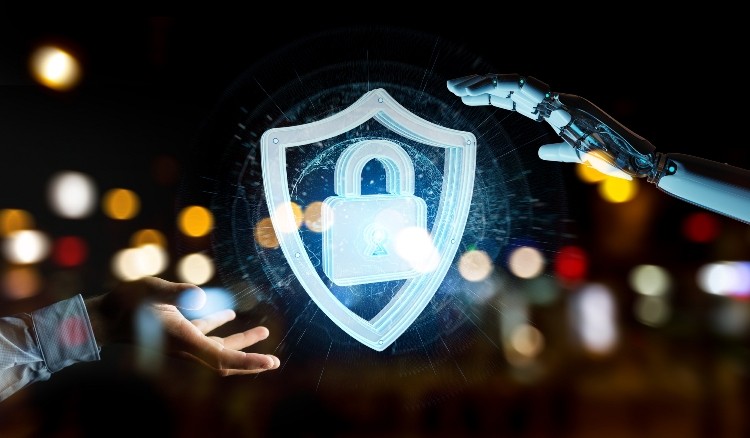
Who is the Inventor of the Firewall?
Over the years, there have been many discussions about who invented the firewall technology. Nir Zuk says he developed the technology which we now see in all SonicWall firewall features today. However, David Pensak is the one who claims to have built the first firewall that was a commercial success. On top of that, we have Marcus Ranum, who also claims to be the father of the firewall. As you can see, it’s a complicated story with so many people taking the claim to the title of the inventor of this incredible solution. However, other people state none of them invented the firewall, and they were just involved in creating the filtering technology that’s critical to its success.
The History of the Firewall
All of the individuals listed above were involved in the evolution of the firewall in some way. While some can be traced back to the start of the firewall, others played their role within the technology development area. In fact, it can be said that all of these men and a few other figures helped to make the first firewall and develop this technology to what it is today. When looking at who invented firewalls, we need to head back to the late 1980s. You might be surprised to hear this technology dates that far back, but this was when it was first developed by the Digital Equipment Corporation. At this time, the firewalls relied on the Open Systems Interconnection model and the first four layers of this model. These ensured packets were either dropped or allowed to move forward in the system, creating the basic function of a firewall.
While this was a great resource to begin with, it soon turned out to be very resource-heavy, which is why Check Point Software Technologies then introduced the circuit-level firewalls. These were later called stateful firewalls, and this was what is considered to be the first generation of firewalls we know and use today. This then led to the packet-filtering firewall and became stateless in regards to the connection aspect of this system.
Modern Firewall Solutions
If you’ve been using a SonicWall small business firewall, you’ll know that the technology has come on a long way since this time. The firewall development has continued for many years to make the solutions we know and use currently. Organic development led to the firewalls that are on the market today, and you’ll find that they now all benefit from user content management and intrusion prevention. The open-source firewall first came to the market in 1993, which offered more layers of firewalling for companies. This was a huge leap forward for the industry and had a heavy influence on products for the next two decades. This was released by Trusted Information Systems, but DEC had also launched a product a couple of years earlier, which was very influential within the industry.
The main takeaway from this period in the history of the firewall is that layered security is the way forward. While network and perimeter firewall solutions might not assist with the cloud, you’ll find that they are still critical for any business today. The need for strong border controls has never been higher, so we can be sure this layered security model is here to stay for many years to come. As with anyone operating in the technology industry, there are always going to be new solutions and changes made to products. Next-generation firewalls will only continue to fight the issues that companies are currently facing. Even small and medium-sized businesses are finding solutions tailored to their needs. Our team knows that not one product is right for every business, and the wide variety of firewalls on offer is one of the best things about the changes in the past years.
There’s no clear answer to the question of who invented the firewall, but it appears to be a joint effort that brought us to where we are today. While we’re sure many people would like to claim the title of the father of the firewall, it’s important that we realise that so much time and technology went into protecting our businesses today. No business should be operating without a firewall, as it’s one of the best solutions for businesses working online. Are you ready to upgrade your firewall solution this year? Contact our team today or check our page for more information about the best firewall options for your business.
Read the next blog: The Top Online Security Myths



